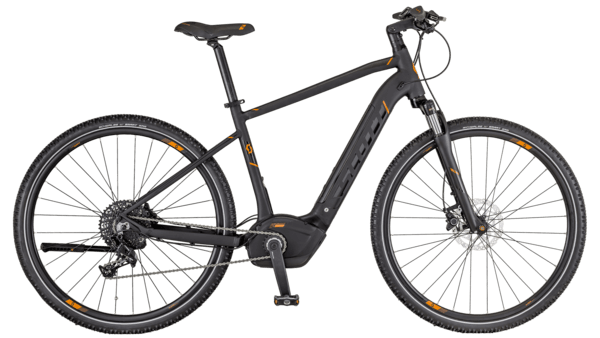
-
 Afrikaans
Afrikaans -
 Albanian
Albanian -
 Amharic
Amharic -
 Arabic
Arabic -
 Armenian
Armenian -
 Azerbaijani
Azerbaijani -
 Basque
Basque -
 Belarusian
Belarusian -
 Bengali
Bengali -
 Bosnian
Bosnian -
 Bulgarian
Bulgarian -
 Catalan
Catalan -
 Cebuano
Cebuano -
 Corsican
Corsican -
 Croatian
Croatian -
 Czech
Czech -
 Danish
Danish -
 Dutch
Dutch -
 English
English -
 Esperanto
Esperanto -
 Estonian
Estonian -
 Finnish
Finnish -
 French
French -
 Frisian
Frisian -
 Galician
Galician -
 Georgian
Georgian -
 German
German -
 Greek
Greek -
 Gujarati
Gujarati -
 Haitian Creole
Haitian Creole -
 hausa
hausa -
 hawaiian
hawaiian -
 Hebrew
Hebrew -
 Hindi
Hindi -
 Miao
Miao -
 Hungarian
Hungarian -
 Icelandic
Icelandic -
 igbo
igbo -
 Indonesian
Indonesian -
 irish
irish -
 Italian
Italian -
 Japanese
Japanese -
 Javanese
Javanese -
 Kannada
Kannada -
 kazakh
kazakh -
 Khmer
Khmer -
 Rwandese
Rwandese -
 Korean
Korean -
 Kurdish
Kurdish -
 Kyrgyz
Kyrgyz -
 Lao
Lao -
 Latin
Latin -
 Latvian
Latvian -
 Lithuanian
Lithuanian -
 Luxembourgish
Luxembourgish -
 Macedonian
Macedonian -
 Malgashi
Malgashi -
 Malay
Malay -
 Malayalam
Malayalam -
 Maltese
Maltese -
 Maori
Maori -
 Marathi
Marathi -
 Mongolian
Mongolian -
 Myanmar
Myanmar -
 Nepali
Nepali -
 Norwegian
Norwegian -
 Norwegian
Norwegian -
 Occitan
Occitan -
 Pashto
Pashto -
 Persian
Persian -
 Polish
Polish -
 Portuguese
Portuguese -
 Punjabi
Punjabi -
 Romanian
Romanian -
 Russian
Russian -
 Samoan
Samoan -
 Scottish Gaelic
Scottish Gaelic -
 Serbian
Serbian -
 Sesotho
Sesotho -
 Shona
Shona -
 Sindhi
Sindhi -
 Sinhala
Sinhala -
 Slovak
Slovak -
 Slovenian
Slovenian -
 Somali
Somali -
 Spanish
Spanish -
 Sundanese
Sundanese -
 Swahili
Swahili -
 Swedish
Swedish -
 Tagalog
Tagalog -
 Tajik
Tajik -
 Tamil
Tamil -
 Tatar
Tatar -
 Telugu
Telugu -
 Thai
Thai -
 Turkish
Turkish -
 Turkmen
Turkmen -
 Ukrainian
Ukrainian -
 Urdu
Urdu -
 Uighur
Uighur -
 Uzbek
Uzbek -
 Vietnamese
Vietnamese -
 Welsh
Welsh -
 Bantu
Bantu -
 Yiddish
Yiddish -
 Yoruba
Yoruba -
 Zulu
Zulu
Understanding the Operation of a Thread Rolling Machine in Manufacturing Processes
The Working Principle of Thread Rolling Machines
Thread rolling machines are essential tools in modern manufacturing, especially in the production of fasteners, bolts, and various metal components. These machines utilize a process that enhances the mechanical properties of the material being worked on, resulting in stronger, more durable threads. Understanding the working principles of thread rolling machines can provide insight into their importance in industrial applications.
At the core of a thread rolling machine is the process of cold forming, where the metal is shaped without excessive heating. This technique not only conserves energy but also preserves the material's integrity by avoiding potential heat-induced alterations. The rolling process involves the use of two or more dies that are precision-engineered to impart the desired thread profile onto the workpiece.
When a metal blank is fed into the machine, it is positioned between the rollers, which are held in a fixed relationship to each other. As the machine operates, the rollers rotate and move toward each other, compressing the metal blank and forcing it into the shape of the dies. This action produces external threads, and importantly, it enhances the grain structure of the metal, leading to improved strength and fatigue resistance.
One significant advantage of thread rolling over traditional machining methods is the elimination of cutting, which can weaken the material. In traditional machining, threads are often cut or machined out of a larger piece, which may leave burrs and cause stress concentrations. In contrast, thread rolling produces smoother threads without leaving residual stresses, which makes the fasteners more reliable. The process is particularly favored for producing high-quality components with tight tolerances and improved surface finishes.
thread rolling machine working product

Thread rolling machines can be classified into various types based on their configuration. The most common types include flat rolling, cylindrical rolling, and planetary rolling machines. Flat rolling machines use flat dies that move vertically to create the thread, while cylindrical machines utilize cylindrical dies to form the threads around round bars or rods. Planetary rolling machines, on the other hand, consist of dies that rotate around a stationary workpiece, allowing for increased productivity and versatility.
The speed of the thread rolling process is another notable feature. These machines can operate at remarkably high speeds, increasing the overall efficiency of production. In many cases, thread rolling can produce components at a rate several times faster than traditional cutting methods. This makes them ideal for high-volume production settings, where time and efficiency directly impact profitability.
Moreover, advancements in technology have led to the automation of thread rolling machines. Modern machines are equipped with computerized controls that enhance precision and allow for quick adjustments in thread specifications. This automation not only minimizes the risk of human error but also enables manufacturers to switch between different thread sizes and types rapidly, thereby catering to diverse customer requirements.
In conclusion, thread rolling machines play a vital role in the manufacturing sector, particularly in producing robust and reliable threaded components. Their cold forming process enhances metal properties, avoids stress concentration, and yields superior surface finishes compared to traditional machining methods. With continued advancements in technology and automation, these machines are set to remain essential tools in industrial manufacturing, driving efficiency and quality in producing threaded products. As industries continue to demand stronger and more reliable components, the significance of thread rolling machines is likely to grow even further.
